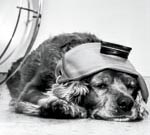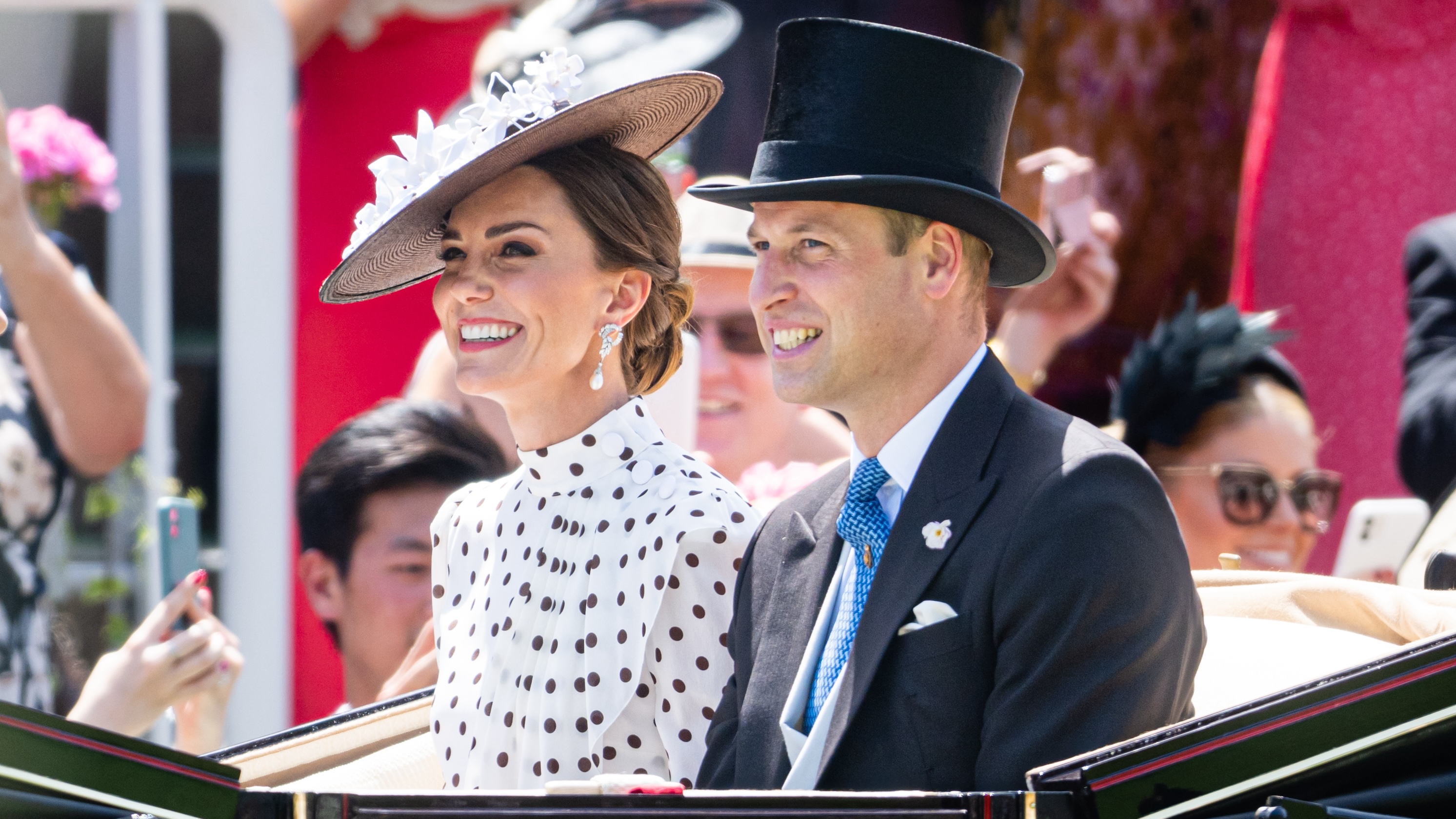How to find a rescue dog
Finding, choosing and then looking after rescue dogs requires special considerations and skills. We advise on making the best match


If you are:
Active: choose a working dog, such as a gundog, terrier or collie
A family with young children: a labrador, golden retriever, whippet, retired greyhound, border terrier, Cavalier King Charles spaniel
Older: a retired greyhound, whippet, pug, smaller poodle, dachshund
Allergic or houseproud: a non-shedding breed, such as a wire-coated, Bedlington, Yorkshire, Irish or Airedale terrier, miniature schnauzer, poodle, curly-coated retriever, Irish water spaniel
Keen on grooming: an Afghan, Old English sheepdog, poodle, Maltese terrier
Working all day: an older dog or retired greyhound. Avoid collies, terriers and working dogs (whatever you get, you must employ a dog walker; many breed rescue centres will not consider anyone who has to leave a dog for more than four hours)
Sign up for the Country Life Newsletter
Exquisite houses, the beauty of Nature, and how to get the most from your life, straight to your inbox.
an Owner of livestock: some lurchers are to be avoided, especially if you have cats, and terriers may chase chickens!
An immaculate gardener: toy breeds, lapdogs and Bichon Frise
Wanting quiet: a whippet, greyhound, lurcher. Avoid guard-dog types and small terriers
Wanting to avoid vets bills: cross-breeds tend to have fewer genetic disorders, and dogs bred for work, rather than looks, tend to have fewer problems
Needing a guard dog: German shepherd, rottweiler, doberman, Staffordshire bull terrier, boxer, giant schnauzer (Guidelines from the Dogs Trust)
COULD YOU RESCUE A DOG?
These are the questions you will be asked
* Where will it live? (The Dogs Trust will not permit a rehomed dog to be kennelled or chained up)
* Is your garden dog-proofed?
* Are you fit enough?
* Do you have children? (Some dogs are nervous of children)
* Do you have other dogs? (Some dogs need to be an only )
* Will you want to take the dog in the car?
* Do you live among livestock?
* Do you want a trained dog?
* Could you train a difficult dog?
* And, most importantly, are you committed?
A selection of dogs to rescue:
ENGLISH SPRINGER SPANIEL
The oldest sporting gundog, intelligent, hardy, extrovert, eager to please and good with children without being aggressive. Can occasionally be prone to sheep worrying. Very boisterous and needs a vast amount of exercise or you ll have problems. Won-derful good-tempered family dog (www.englishspringerrescue.org.uk)
ENGLISH POINTER
Great jogging companion they like to run, but are also soppy couch potatoes who love sleeping on the furniture. A fenced area is essential pointers are bred to hunt and will not immediately understand new boundaries. Crate training is a good way of giving the pointer privacy for a time as he adjusts to a new home (www.dogpages.org.uk)
DALMATION
Bred as a carriage dog, with huge stamina, and needs plenty of companionship and exercise. Suffers from a fashion-accessory image, but is not a city dog. Good house dog, outgoing and friendly with an excessively waggy tail that will smash any ornaments within reach to smithereens (www.dalmationwelfare.co.uk)
DACHSHUND
Endearing, characterful, friendly little dog who was bred to flush badgers, and is, therefore, immensely courageous. Inde-pendent and territorial, dachshunds need fair and consistent handling, or you ll end up with a mini-tyrant. Beware back problems dachshunds should avoid stairs and leaping out of cars (www.dachshundclub.co.uk, has a 6 12 month waiting list)
LURCHER
A type sight-hound, working-dog cross rather than a breed, the lurcher was first bred as a poacher s accomplice (lur is Romany for thief). Loving, characterful, capable of thrilling acceleration and thus exciting to exercise, but not for the impractical or squeamish lurchers can bring down deer. Yet, like the greyhound, lurchers also have a tranquil stillness (www.lurcher.org)
LABRADOR
Labradors are sociable and faithful; they want to be with you, whatever you re doing, and don t like their own company, so shouldn t be left alone for a long time. They need considerable exercise, in all weathers, to stay both slim and quiet, and they eat an awful lot labradors don t flourish on cheap food. Gentle and kind with children (www.labrador-rescue.com)
FOX TERRIER
Bred to bolt foxes and kill vermin, the fox terrier oozes personality and is loyal and hardy. The wire-haired variety used to have a mild reputation for snappishness; the smooth can be more difficult to train. Both like digging and chasing, especially cats and chickens, and should be kept on a lead near the road, as they can suddenly dash off (www.foxterrierclub.co.uk)
NORFOLK TERRIER
Lovable, appealing and cheerful little dogs although their yap can shatter glass who usually settle easily into a new home. They do need proper exercise, despite their smallness, and they love hunting. They re escapologists and tend not to have any road sense, so a well-fenced garden is a must. Bitches can be more difficult to house-train (www.norfolkterrier.club)
BLOODHOUND
Noble, dignified, wise and very slobbery, big, strong dogs. Bloodhounds were bred to hunt by scent, and once they have it, they re oblivious to anything else, so dog-proof fencing and awareness of nearby roads are essential. Bloodhounds are affectionate and sensitive a stern tone is all that s needed as a reprimand (www.bloodhounds.co.uk)
Country Life is unlike any other magazine: the only glossy weekly on the newsstand and the only magazine that has been guest-edited by HRH The King not once, but twice. It is a celebration of modern rural life and all its diverse joys and pleasures — that was first published in Queen Victoria's Diamond Jubilee year. Our eclectic mixture of witty and informative content — from the most up-to-date property news and commentary and a coveted glimpse inside some of the UK's best houses and gardens, to gardening, the arts and interior design, written by experts in their field — still cannot be found in print or online, anywhere else.
-
 'The watch is Head Boy of men’s accessorising': Ginnie Chadwyck-Healey and Tom Chamberlin's Summer Season style secrets
'The watch is Head Boy of men’s accessorising': Ginnie Chadwyck-Healey and Tom Chamberlin's Summer Season style secretsWhen it comes to dressing for the Season, accessories will transform an outfit. Ginnie Chadwyck-Healey and Tom Chamberlin, both stylish summer-party veterans, offer some sage advice.
-
 Lewis Hamilton, Claude Monet and the Four Horsemen of the Apocalypse: Country Life Quiz of the Day, April 29, 2025
Lewis Hamilton, Claude Monet and the Four Horsemen of the Apocalypse: Country Life Quiz of the Day, April 29, 2025Tuesday's Quiz of the Day looks back at Lewis Hamilton's first win and ponders on the meaning of greige.